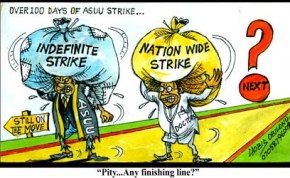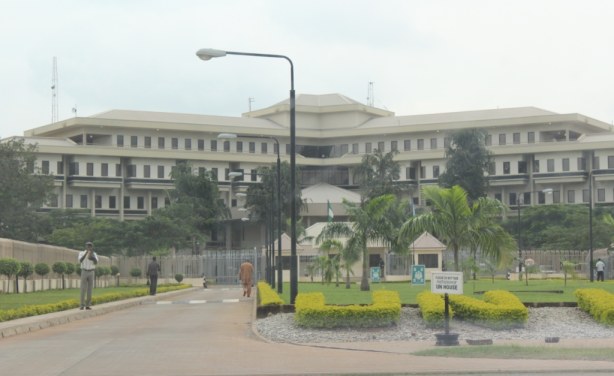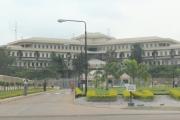
Mr. Reno Omokri is Special Assistant on New Media to President Jonathan.
In an article published in the Vanguard of Tuesday November 12, 2013 and entitled ‘Money-Laundering Nigeria’s Future’, one Mr. Femi Aribisala made claims to the effect that the British Prime Minister, Mr. David Cameron, had asked Nigeria to account for $100 billion revenue which had accrued to the nation in 2012.
Let me say that Mr. Femi Aribisala was being economical with the truth when he said this. Nothing of the sort ever happened. Mr. Femi Aribisala may have been relying on false headlines carried by some opposition linked sites which have no basis in reality.
First and foremost, Nigeria is a sovereign country and the British Government would not intrude into our sovereignty. It would have been more honourable if Mr. Aribisala had carried out some due diligence from the British High Commission before making the false claim which he made. Be that as it may, let me again say that such an incidence never occurred. It is fictitious and it has no basis in truth.
Also, Mr. Aribisala also said: “President Jonathan went cap-in-hand to the Group of Eight industrial countries (G8) to solicit loans in international multilateral institutions for unspecified infrastructural industrial restructuring in Nigeria. The fact that his request was rejected outright tells me our President could not give satisfactory explanation to the G8”. This also is completely false and untrue in its entirety.
Nigeria is currently the number one destination for Foreign Direct Investment, FDI, in Africa for the year 2013 having racked up $20 billion in FDI in the last three years. Moreover, Nigeria’s credit worthiness is next to none in Africa, a fact that was attested to when both Standard and Poor’s and Fitch ratings (the world’s top ratings agencies) upgraded Nigeria’s economy in October 2012 and reaffirmed their rating in October 2013 when Standard and Poor’s rated Nigeria as having a “strong” and “stable” economic outlook. A few days after S & P gave this endorsement, Fitch rated Nigeria’s economy as “stable” with a BB- rating.
Mr. Aribisala did not provide any factual evidence for his claims which are quite puzzling as the world’s global financial institutions have affirmed their eagerness not only to provide loans for Nigeria’s government, but are even willing to fund the private sector. There has never been a time that Nigeria was rejected by financial institutions under the administration of President Goodluck Jonathan and if Mr. Aribisala has the details of such an occurrence, I would urge him to make such details known in specific terms which should include the nations or institutions involved. I know that he cannot offer such details because such incidences never occurred.
In fact, rather than condemn Nigeria, the British Prime Minister, whom Aribisala falsely cites as his authority, and his government have at various times in the last one year commended Nigeria’s economic performance.
For instance, during his speech to the Conservative Party on October 10, 2012, the British Prime Minister, David Cameron had this to say about Nigeria: “Yes, we’ve been hearing about China and India for years …but it’s hard to believe what’s happening in Brazil, in Indonesia, in Nigeria too. Meanwhile, the old powers are on the slide. What do the countries on the rise have in common? They are lean, fit, obsessed with enterprise, spending money on the future – on education, incredible infrastructure and technology.”
The above statement by Mr. Cameron completely contradicts the assertions that Mr. Aribisala falsely attributes to him. And that is not the only endorsement Mr. Cameron has passed on the Nigerian economy. During his state visit to Nigeria, Prime Minister Cameron spoke at the LagosBusinessSchool and said: “Which part of the world has seen its number of democracies increase nearly eight-fold in just two decades? Eastern Europe? No, it’s Africa. Which continent has six of the 10 fastest growing economies in the world? Asia? No, it’s Africa. Which country is predicted by some to have the highest average GDP growth in the world over the next 40 years? You might think Brazil, Russia, India or China. No. Think Africa. Think Nigeria”.
These are facts that I have listed and I must say that Mr. Aribisala should familiarise himself with that word. A person may be entitled to his opinions, but he is certainly not entitled to the facts.
As the pièce de résistance of his article on money laundering, Aribisala said: “It is also not possible to expect the Nigerian government to police itself. The government itself is the problem”. Again, Mr. Aribisala tried to paint a picture as if Nigeria has regressed on the issue of money laundering. Let me present him with some more facts.
On October 18, 2013, the Financial Action Task Force, FATF, removed Nigeria from the list of countries identified as jurisdictions with significant deficiencies in their Anti-Money Laundering and Counter Financing of Terrorism, AML/CFT, regimes. In doing so, the FATF said it “expressed satisfaction with the political will displayed by Nigeria in improving its Global AML/CFT compliance”.
Who are we to believe between the global institution charged with monitoring money laundering and one Mr. Femi Aribisala who offers up nothing but conjecture and gossip from online news sites with an ax to grind with the Federal Government?
Mr. Aribisala should note that under President Jonathan, Nigeria has made great progress in removing the veil on the sectors of the economy most prone to corruption. For instance, history was made on November 1, 2013 when the power sector was privatized. No more would Nigerians hear that the Federal Government pumped billions of dollars into the sector without commensurate returns. No! Those days are gone forever.
Finally, let me remind Mr. Aribisala of what the President said during his last Presidential Media Chat. He said if it was true that he was benefitting from the subsidy regime and that those who benefited from the fraud in the subsidy regime financed his elections then why would he want to bring an end to the scheme? If that were true, then surely he would want the scheme to continue!
It is such sincerity that the FATF saw and acted upon in removing Nigeria from its list and I hope the facts I have presented above would likewise help Mr. Aribisala remove the beam from his eye so that he can more clearly see the speck in his neighbour’s eye.
Mr. Reno Omokri is Special Assistant on New Media to President Jonathan.
MUST READ



![BR Ngozi 500[1]](http://www.iol.co.za/polopoly_fs/br-ngozi-500-1-1.1610127!/image/280905526.jpg_gen/derivatives/box_300/280905526.jpg)






